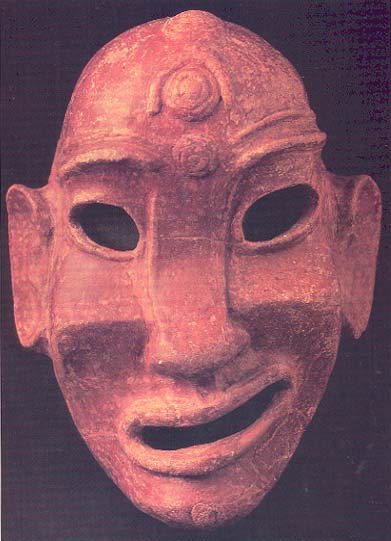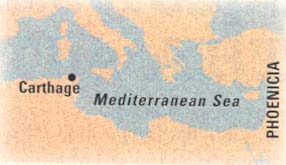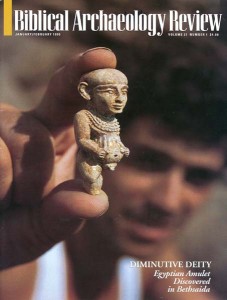
Half smiling, half scowling, this terra-cotta mask from Phoenician Carthage (modern Tunis, Tunisia) provides evidence of a popular folk custom of using fierce, distorted images to ward off evil spirits. Similar apotropaic masks, with slanted eyes, broad nose and furrowed brow, have been discovered at many Phoenician settlements.

According to the classical author Timaeus, Carthage was founded in 814 B.C. by Elissa, a Phoenician princess who fled to northern Africa after her brother, the king of Tyre, killed her husband. Although Timaeus’s account may mix legend with history, his ninth-century B.C. date of settlement is consistent with the archaeological remains.
By the seventh to sixth century B.C., when this mask was sculpted, Elissa’s fledgling colony had developed into a major Phoenician port. Unrivalled in maritime commerce, the Phoenicians had established trade routes that reached from their homeland in modern Lebanon, Syria and northern Israel to southern Spain.
Already a library member? Log in here.
Institution user? Log in with your IP address.

